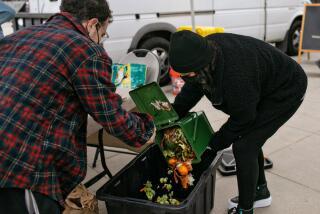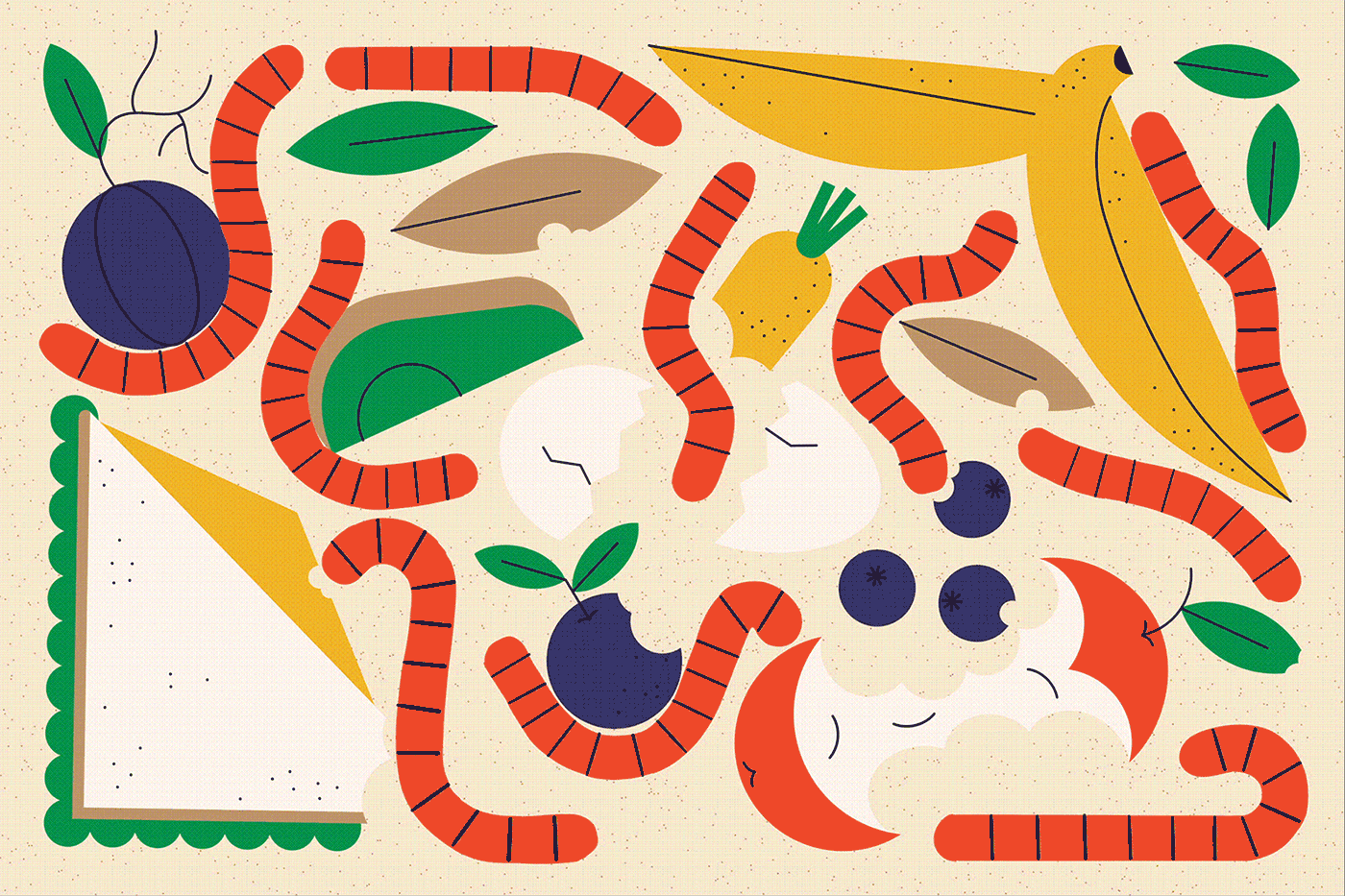GARDENING : Gardeners Can’t Have Too Much Compost
- Share via
Making garden compost is like making bread, wine or yogurt--you need to provide the correct conditions for the particular micro-organisms that do the work.
With composting, however, you cannot fail. No matter what you do, any biodegradable material will eventually decompose to form compost.
The organisms that make compost need food, water and air.
Carbon and nitrogen are the two important foodstuffs of composting micro-organisms that you need to consider. Old plant materials (usually dry and brown), such as straw, sawdust, cornstalks and wood chips, are rich in carbon. If too much of these materials is used in making a compost pile, decomposition proceeds slowly.
Green, succulent plant materials, such as grass clippings and young weeds, are rich in nitrogen, as are manures and, of course, nitrogen fertilizers. A compost pile built with excess high-nitrogen materials will smell of ammonia.
Feeding the compost “bugs” is not complicated in practical terms. You mix some of the high nitrogen stuff with some of the low nitrogen stuff.
Leaves that have fallen from trees are low in nitrogen; put a four-inch layer in your compost pile. Balance that carbon with, perhaps, a four-inch layer of grass clippings or a sprinkling of fertilizer. Toss in rotten tomatoes, cornstalks, leftover food and other vegetation as it becomes available. Vegetable trimmings have a good balance of carbon and nitrogen.
Compost organisms, plants and humans all thrive on varied diets. The only thing to keep out of the compost pile is fat, which makes composting organisms sluggish and is more appreciated by winter birds.
As you build the pile with alternating layers of materials, occasionally sprinkle on some soil and lime. Soil buffers chemical changes and adds weight to the finished compost.
Lime “sweetens” the compost and improves its final texture. Do not use lime in compost destined for the ground beneath azaleas, rhododendrons, blueberries and other plants that prefer acidic soils.
Sprinkle the pile with water as you build to get everything shining wet but not sodden. Rainfall eventually will trickle to the core of the pile, but sprinkling each layer ensures that the pile starts cooking quickly.
Peel off the outside layer and look inside after a couple of weeks. Dry, white fungal threads mean your pile is thirsty.
Make sure there is enough air in the pile. If your compost pile becomes anaerobic (without air), a whole new set of micro-organisms takes over. In the back yard, anaerobic composting is not as desirable as aerobic composting. The anaerobic process releases offensive odors, attracts flies, results in nitrogen loss and delays composting.
Lack of air in a compost pile results when too much water is added or when the composting materials are packed too tightly. If your compost pile becomes too dense or waterlogged, turn it over with a pitchfork to fluff it up. Also, mix dense ingredients, such as grass clippings, with loose ingredients, such as wood chips.
Once built, cover the pile to seal in moisture and keep out rain, and within a couple of days bacteria should have the pile cooking.
In early morning, steam will smolder from the hot interior. A compost pile should be no smaller than a cubic yard, in order to contain this heat.
After the initial rapid heating, the pile will gradually cool as each set of micro-organisms performs is specific jobs of decomposition.
Compost is ready to use when most of the original material has decomposed to become dark and crumbly. Smell it. Finished compost has the earthy smell of a rich, woodsy soil.
Spread finished compost on your vegetable garden and flower beds and underneath your shrubs. Rub it through a half-inch sieve and add it to potting soil or spread a thin layer of it over your lawn.
Compost is a dynamic brew, seething with activity in the compost pile and then gradually “finishing” in your soil.
Compost is a good thing you cannot have too much of. Use any amount at any time.






